- Home
- Nora Roberts
Whiskey Beach Page 5
Whiskey Beach Read online
Page 5
Ignoring the voice in his head that urged him to just lie down, sleep off the rest of the day, he dressed for the cold, layering sweatshirt over insulated shirt, getting a ski cap, gloves.
Maybe he wasn’t going anywhere, but that didn’t mean the walkways, the driveway, even the terraces shouldn’t be cleared.
He’d promised to tend to Bluff House, so he’d tend to Bluff House.
It took hours, with snowblower, snow shovel. He lost count of the times he had to stop, to rest when his pulse beat pounded alarm bells in his head, or his arms shook like palsy. But he cleared the driveway, the front walk, then a decent path across the main terrace to the beach steps.
And thanked God when the light faded to dusk and made continuing with the other terraces impractical. Inside, he dumped his outdoor gear in the mudroom, walked like a zombie into the kitchen where he slapped some lunch meat and Swiss cheese between two slices of bread and called it dinner.
He washed it down with a beer, simply because it was there, eating and drinking while he stood over the sink and looked out the window.
He’d done something, he told himself. He’d gotten out of bed, always the first hurdle. He’d written. He’d humiliated himself on the cross trainer. And he’d tended to Bluff House.
All in all, a pretty decent day.
He popped four Motrin, then dragged his aching body upstairs. He stripped, crawled into bed, and slept until dawn. Dreamlessly.
It surprised and pleased Abra to find the driveway cleared at Bluff House. She’d fully expected to slog through two feet of untrampled snow.
Normally, she’d have walked from her cottage, but opted against navigating deep snow or thin ice on foot. She pulled her Chevy Volt behind Eli’s BMW, grabbed her bag.
She unlocked the front door, cocked her head to listen. When silence greeted her, she decided Eli was either still in bed or closed up somewhere in the house.
She hung her coat in the closet, changed her boots for work shoes.
She started a fire in the living room first, to cheer the room, then headed to the kitchen to make coffee.
No dishes in the sink, she noted, and opened the dishwasher.
She could track his meals since he’d arrived. The breakfast she’d made him, a couple of soup bowls, two small plates, two glasses, two coffee mugs.
She shook her head.
This wouldn’t do.
To corroborate, she checked cupboards, the refrigerator.
No, this wouldn’t do at all.
She turned the kitchen iPod on low, then gathered ingredients. Once she’d made up a bowl of pancake batter, she went upstairs to find him.
If he was still in bed, it was time he got up.
But she heard the clicking of a keyboard from Hester’s home office, smiled. That was something anyway. Moving quietly, she peeked through the open doorway to see him sitting at the wonderful old desk, an open bottle of Mountain Dew (mental note to pick up more for him) beside the keyboard.
She’d give him a little more time there, she decided, and went straight into his bedroom. She made the bed, pulled the laundry bag out of the hamper, added bath towels.
She checked other baths on the way back in case he’d used hand towels or washcloths, checked the gym.
Back downstairs, she carted the bag into the laundry room, sorted, separated and started a load. And shook out, hung up his outdoor gear.
Not a lot to tidy, she realized, and she’d given the house a thorough cleaning the day before he’d arrived. While she could always find something to do, she calculated the time. She’d make him a kind of brunch before she rolled up her sleeves and really got to work.
The next time she went upstairs, she deliberately made noise. When she reached the office, he was up and moving to the door. Probably with the intention of closing it, she thought, so she stepped in before he could.
“Good morning. It’s a gorgeous day.”
“Ah—”
“Fabulous blue skies.” With her trash bag in hand, she walked over to empty the basket under the desk. “Blue sea, sun sparkling off the snow. The gulls are fishing. I saw a whale this morning.”
“A whale.”
“Just luck. I happened to be looking out the window just as it sounded. Way out, and still spectacular. So.” She turned. “Your brunch is ready.”
“My what?”
“Brunch. It’s too late for breakfast, which you didn’t eat.”
“I had . . . coffee.”
“Now you can have food.”
“Actually, I’m . . .” He gestured to his laptop.
“And it’s annoying to be interrupted, to be hauled off to eat. But you’ll probably work better after some food. How long have you been writing today?”
“I don’t know.” It was annoying, he thought. The interruption, the questions, the food he didn’t want to take time for. “Since about six, I guess.”
“Well, God! It’s eleven, so definitely time for a break. I set you up in the morning room this time. The view’s so nice from there, especially today. Do you want me to do any cleaning in here while you eat—or ever?”
“No. I . . . No.” After another slight pause. “No.”
“I got that. Go ahead and eat, and I’ll do what I have to do on this level. That way if you want to go back to work, I’ll be downstairs where I won’t bother you.”
She stood between him and his laptop, smiling genially in a faded purple sweatshirt with a peace sign dead center, even more faded jeans and bright orange Crocs.
As arguing seemed time-consuming and futile, he simply walked out of the room.
He’d meant to stop and have something—maybe a bagel, whatever. He’d lost track of time. He liked losing track of time because it meant he was inside the book.
She was supposed to clean the house, not take on the position as his damn keeper.
He hadn’t forgotten she was coming. But his plan to stop writing when she arrived, to grab that bagel and take it with him on a walk, to call home while he was out, well, the book sucked that away.
He turned left, into the glass-walled curve of the morning room.
Abra was right. The view was worth it. He’d take that walk later if he could find a reasonable route with the snow. At least he could get to the beach steps, take some pictures with his phone, send them home.
He sat at the table with its covered plate, its short pot of coffee, crystal glass of juice. She’d even taken one of the flowers from the living room arrangement and tucked it in a bud vase.
It reminded him of the way his mother had put a flower or some game or book or toy on the tray when she brought food to his sickbed when he was a boy.
He wasn’t sick. He didn’t need to be mothered. All he needed was someone to come in and clean so he could write, live, shovel damn snow if it needed shoveling.
He sat, wincing a little at the stiffness in his neck, his shoulders. Okay, the Shovel Snow for Pride Marathon had cost him, he admitted.
He lifted the dome.
A puff of fragrant steam rose from a stack of blueberry pancakes. A rasher of crisp bacon lined the edge of the plate and a little clear bowl of melon garnished with sprigs of mint sat beside it.
“Wow.”
He simply stared a moment, struggling between more annoyance and acceptance.
He decided both worked. He’d eat because it was here, and now he was damn near starving, and he could be annoyed about it.
He spread some of the butter she’d scooped into a little dish over the stack, watched it melt as he added syrup.
It felt a little Lord of the Manor—but really tasty.
He knew very well he’d been raised in privilege, but pretty brunches with the morning paper folded on the table hadn’t been everyday events.
The Landons were privileged because they worked, and worked because they were privileged.
As he ate he started to open the paper, then just set it aside. Like television, newspapers held too many bad memories.
The view contented him, and letting his mind just drift, he watched the water, and the drip of melting snow as the sun bore down.
He felt . . . almost peaceful.
He looked over when she came in. “Second floor’s clear,” she told him, and started to lift the tray.
“I’ll get it. No,” he insisted. “I’ll get it. Look, you don’t have to cook for me. It was great, thanks, but you don’t have to cook.”
“I like to cook, and it’s not all that satisfying to cook just for myself.” She followed him into the kitchen, then continued on to the laundry room. “And you’re not eating properly.”
“I’m eating.” He mumbled it.
“A can of soup, a sandwich, a bowl of cold cereal?” She carried in a laundry basket, sat in the breakfast nook to fold. “You don’t have secrets from the housekeeper,” she said easily. “Not about eating, showering and sex. You need to put on about fifteen pounds, I’d say. Twenty wouldn’t hurt you.”
No, he hadn’t been able to find his anger for months, but she was drawing him a map. “Listen—”
“You can tell me it’s none of my business,” she said, “but that won’t stop me. So I’ll cook when I have time. I’m here anyway.”
He couldn’t think of a reasonable way to argue with a woman who was currently folding his boxers.
“Can you cook?” she asked him.
“Yeah. Enough.”
“Let’s see.” She cocked her head, swept that green-eyed gaze over him. “Grilled cheese sandwiches, scrambled eggs, steak on the grill—burgers, too—and . . . something with lobster or clams.”
He called it Clams à la Eli—and really wished she’d get out of his head. “Do you mind read as well as make pancakes?”
“I read palms and tarot, but mostly for fun.”
It didn’t surprise him, he realized, not in the least.
“Anyway, I’ll make up a casserole or two, something you can just heat and eat. I’ll be going to the market before I come back. I marked my days on the calendar there so you’ll have a schedule. Do you want me to pick up anything for you, besides more Mountain Dew?”
Her brisk, matter-of-fact details clogged up his brain. “I can’t think of anything.”
“If you do, just write it down. What’s your book about? Or is that a secret?”
“It’s . . . A disbarred lawyer looking for answers, and redemption. Is he going to lose his life, literally, or get it back? That kind of thing.”
“Do you like him?”
He stared at her a moment because it was exactly the right question. And the kind he wanted to answer rather than brush off or avoid. “I understand him, and I’m invested in him. He’s evolving into someone I like.”
“Understanding him is more important than liking him, I’d think.” She frowned as Eli rubbed at his shoulder, the back of his neck. “You hunch.”
“I’m sorry?”
“Over the keyboard. You hunch. Most people do.” She set the laundry aside, and before he realized what she meant to do, she’d stepped up to dig her fingers into his shoulder.
Pain, sudden and sweet, radiated straight down to the soles of his feet. “Look, ow.”
“Good God, Eli, you’ve got rocks in there.”
Annoyance edged to a kind of baffled frustration. Why wouldn’t the woman leave him alone? “I just overdid it yesterday. Clearing the snow.”
She lowered her hands as he stepped back, opened the cupboard for the Motrin.
Partly overdoing, she thought, partly keyboard hunch. But under all that? Deep, complex and system-wide stress.
“I’m going to get out for a while, make some phone calls.”
“Good. It’s cold, but it’s beautiful.”
“I don’t know what to pay you. I never asked.”
When she named a price, he reached for his wallet. Found his pocket empty. “I don’t know where I left my wallet.”
“In your jeans. Now it’s on your dresser.”
“Okay, thanks. I’ll be right back.”
Poor, sad, stressed Eli, she thought. She had to help him. She thought of Hester, shaking her head as she loaded the dishwasher. “You knew I would,” she murmured.
Eli came back, set the money on the counter. “And thanks if I don’t get back before you leave.”
“You’re welcome.”
“I’m just going to . . . see what the beach is like, and call my parents, my grandmother.” And get the hell away from you.
“Good. Give them all my best.”
He stopped at the door to the laundry room. “You know my parents?”
“Sure. I’ve met them several times when they’ve come here. And I saw them when I came to Boston to visit Hester.”
“I didn’t realize you came into Boston to see her.”
“Of course I did. We just missed each other, you and I.” She started the machine and turned. “She’s your grandmother, Eli, but she’s been one to me, too. I love her. You should take a picture of the house from down at the beach and send it to her. She’d like that.”
“Yeah, she would.”
“Oh, Eli?” she said as he turned to the laundry room and she walked over to pick up the laundry basket. “I’ll be back about five-thirty. My schedule’s clear tonight.”
“Back?”
“Yeah, with my table. You need a massage.”
“I don’t want—”
“Need,” she repeated. “You may not think you want one, but trust me, you will after I get started. This one’s on the house—a welcome back gift. Therapeutic massage, Eli,” she added. “I’m licensed. No happy endings.”
“Well, Jesus.”
She only laughed as she sailed out. “Just so we understand each other. Five-thirty!”
He started to go after her, make it clear he didn’t want the service. And at the jerk away from the door, dull pain shot across the back of his shoulders.
“Shit. Just shit.”
He had to ease his arms into his coat. He just needed the Motrin to kick in, he told himself. And to get back inside his own head without her in it, so he could think about the book.
He’d walk—somewhere—call, breathe, and when this nagging stiffness, this endless aching played out, he’d just text her—better to text—and tell her not to come.
But first he’d take her advice, go down to the beach, take a picture of Bluff House. And maybe he’d wheedle some information out of his grandmother about Abra Walsh.
He was still a lawyer. He ought to be able to finesse some answers out of a witness already biased in his favor.
As he followed the path he’d cut down through the patio, he glanced back and saw Abra in his bedroom window. She waved.
He lifted his hand, turned away again.
She had the kind of fascinating face that made a man want to look twice.
So he very deliberately kept his gaze straight ahead.

 A Little Magic
A Little Magic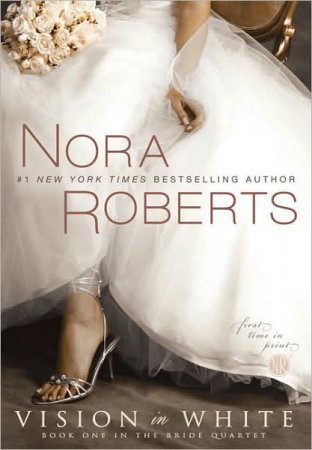 Vision in White
Vision in White True Betrayals
True Betrayals The Next Always
The Next Always A Man for Amanda
A Man for Amanda Born in Fire
Born in Fire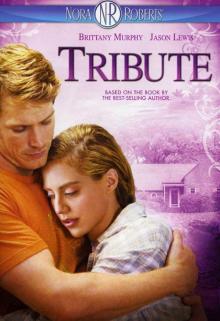 Tribute
Tribute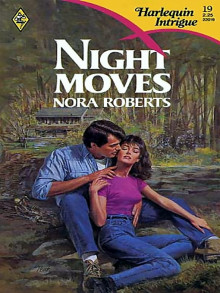 Night Moves
Night Moves Dance Upon the Air
Dance Upon the Air The Name of the Game
The Name of the Game Jewels of the Sun
Jewels of the Sun River's End
River's End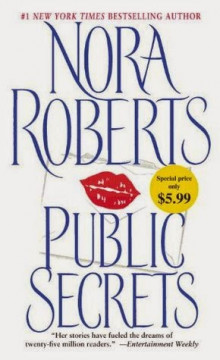 Public Secrets
Public Secrets Homeport
Homeport Private Scandals
Private Scandals The Witness
The Witness Blithe Images
Blithe Images Hidden Riches
Hidden Riches Key of Light
Key of Light Divine Evil
Divine Evil High Noon
High Noon Blue Dahlia
Blue Dahlia Sea Swept
Sea Swept This Magic Moment
This Magic Moment Year One
Year One A Little Fate
A Little Fate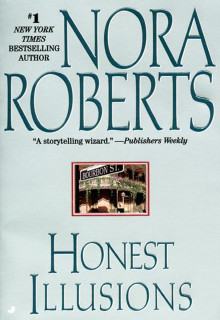 Honest Illusions
Honest Illusions The Reef
The Reef Shelter in Place
Shelter in Place The Hollow
The Hollow Holding the Dream
Holding the Dream The Pagan Stone
The Pagan Stone Savour the Moment
Savour the Moment The Perfect Hope
The Perfect Hope Island of Glass
Island of Glass Happy Ever After
Happy Ever After Bed of Roses
Bed of Roses Stars of Fortune
Stars of Fortune Dark Witch
Dark Witch The Return of Rafe MacKade
The Return of Rafe MacKade Chesapeake Blue
Chesapeake Blue The Perfect Neighbor
The Perfect Neighbor The Collector
The Collector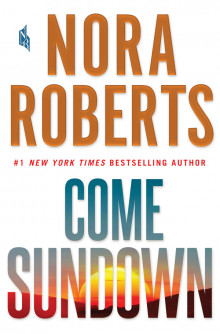 Come Sundown
Come Sundown Rebellion
Rebellion Affaire Royale
Affaire Royale Daring to Dream
Daring to Dream Bay of Sighs
Bay of Sighs Blood Magick
Blood Magick Angels Fall
Angels Fall Captivated
Captivated The Last Boyfriend
The Last Boyfriend Irish Thoroughbred
Irish Thoroughbred Inner Harbor
Inner Harbor The Right Path
The Right Path Night Shadow
Night Shadow The Heart of Devin MacKade
The Heart of Devin MacKade Shadow Spell
Shadow Spell The Playboy Prince
The Playboy Prince The Fall of Shane MacKade
The Fall of Shane MacKade Rising Tides
Rising Tides Command Performance
Command Performance Hidden Star
Hidden Star Cordina's Crown Jewel
Cordina's Crown Jewel The MacGregor Brides
The MacGregor Brides The Pride of Jared MacKade
The Pride of Jared MacKade Born in Ice
Born in Ice Whiskey Beach
Whiskey Beach The Last Honest Woman
The Last Honest Woman Night Shield
Night Shield Born in Shame
Born in Shame Secret Star
Secret Star Tempting Fate
Tempting Fate Nightshade
Nightshade The Obsession
The Obsession Night Shift
Night Shift Playing The Odds
Playing The Odds Tears of the Moon
Tears of the Moon One Man's Art
One Man's Art The MacGregor Groom
The MacGregor Groom Irish Rebel
Irish Rebel Morrigan's Cross
Morrigan's Cross In From The Cold
In From The Cold Night Smoke
Night Smoke Finding the Dream
Finding the Dream Red Lily
Red Lily The Liar
The Liar Montana Sky
Montana Sky Heart of the Sea
Heart of the Sea All The Possibilities
All The Possibilities Opposites Attract
Opposites Attract Captive Star
Captive Star The Winning Hand
The Winning Hand Key of Valor
Key of Valor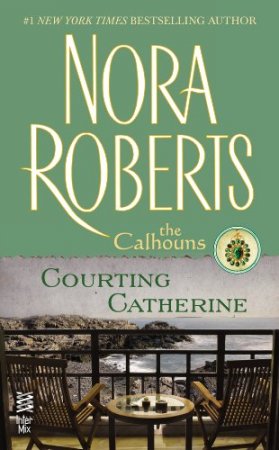 Courting Catherine
Courting Catherine Heaven and Earth
Heaven and Earth Face the Fire
Face the Fire Untamed
Untamed Skin Deep
Skin Deep Enchanted
Enchanted Song of the West
Song of the West Suzanna's Surrender
Suzanna's Surrender Entranced
Entranced Dance of the Gods
Dance of the Gods Key of Knowledge
Key of Knowledge Charmed
Charmed For Now, Forever
For Now, Forever Blood Brothers
Blood Brothers Sweet Revenge
Sweet Revenge Three Fates
Three Fates Mind Over Matter
Mind Over Matter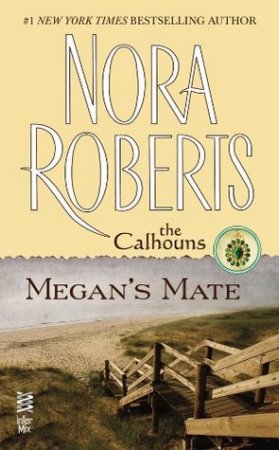 Megan's Mate
Megan's Mate Valley of Silence
Valley of Silence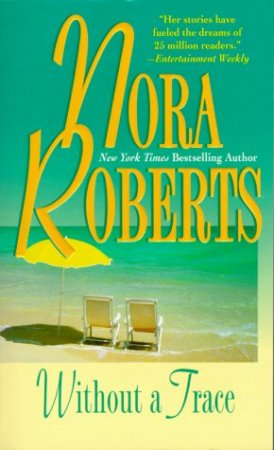 Without A Trace
Without A Trace The Law is a Lady
The Law is a Lady Temptation
Temptation Dance to the Piper
Dance to the Piper Blue Smoke
Blue Smoke Black Hills
Black Hills The Heart's Victory
The Heart's Victory Sullivan's Woman
Sullivan's Woman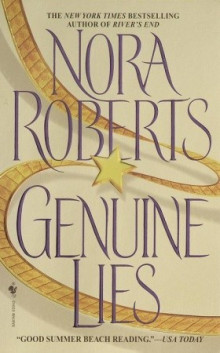 Genuine Lies
Genuine Lies For the Love of Lilah
For the Love of Lilah Gabriel's Angel
Gabriel's Angel Irish Rose
Irish Rose Hot Ice
Hot Ice Dual Image
Dual Image Lawless
Lawless Catch My Heart
Catch My Heart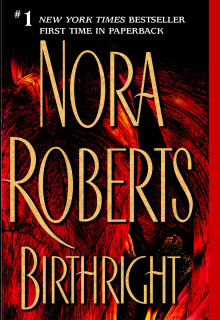 Birthright
Birthright First Impressions
First Impressions Chasing Fire
Chasing Fire Carnal Innocence
Carnal Innocence Best Laid Plans
Best Laid Plans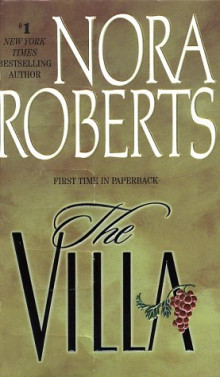 The Villa
The Villa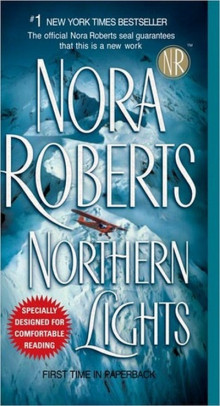 Northern Lights
Northern Lights Local Hero
Local Hero Island of Flowers
Island of Flowers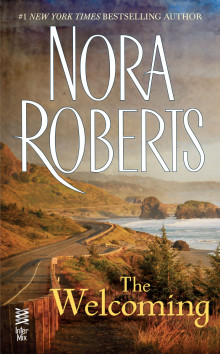 The Welcoming
The Welcoming All I Want for Christmas
All I Want for Christmas Black Rose
Black Rose Hot Rocks
Hot Rocks Midnight Bayou
Midnight Bayou The Art of Deception
The Art of Deception From This Day
From This Day Less of a Stranger
Less of a Stranger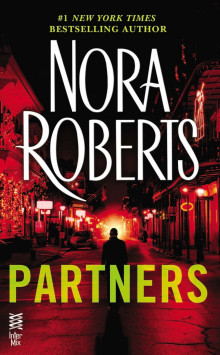 Partners
Partners Storm Warning
Storm Warning Once More With Feeling
Once More With Feeling Her Mother's Keeper
Her Mother's Keeper Sacred Sins
Sacred Sins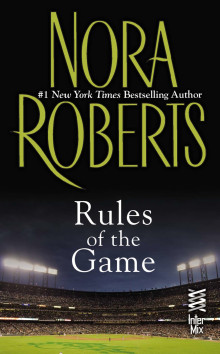 Rules of the Game
Rules of the Game Sanctuary
Sanctuary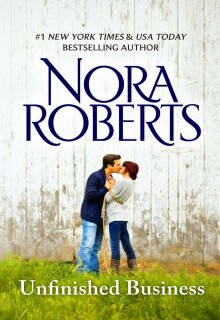 Unfinished Business
Unfinished Business Cordina's Royal Family Collection
Cordina's Royal Family Collection Dangerous Embrace
Dangerous Embrace One Summer
One Summer The Best Mistake
The Best Mistake Boundary Lines
Boundary Lines Under Currents
Under Currents The Stanislaski Series Collection, Volume 1
The Stanislaski Series Collection, Volume 1 The Rise of Magicks
The Rise of Magicks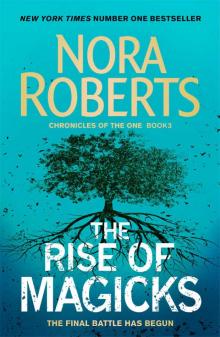 The Rise of Magicks (Chronicles of The One)
The Rise of Magicks (Chronicles of The One) The Awakening: The Dragon Heart Legacy Book 1
The Awakening: The Dragon Heart Legacy Book 1 Dance of Dreams
Dance of Dreams Skin Deep: The O'Hurleys
Skin Deep: The O'Hurleys The Quinn Legacy: Inner Harbor ; Chesapeake Blue
The Quinn Legacy: Inner Harbor ; Chesapeake Blue![[Chronicles of the One 03.0] The Rise of Magicks Read online](http://i1.bookreadfree.com/11/chronicles_of_the_one_03_0_the_rise_of_magicks_preview.jpg) [Chronicles of the One 03.0] The Rise of Magicks
[Chronicles of the One 03.0] The Rise of Magicks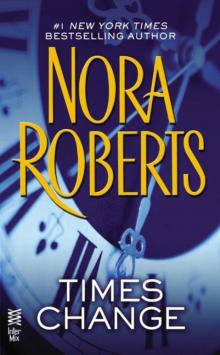 Times Change
Times Change Dance to the Piper: The O'Hurleys
Dance to the Piper: The O'Hurleys Christmas In the Snow: Taming Natasha / Considering Kate
Christmas In the Snow: Taming Natasha / Considering Kate Waiting for Nick
Waiting for Nick Summer Desserts
Summer Desserts Dream 2 - Holding the Dream
Dream 2 - Holding the Dream The Novels of Nora Roberts, Volume 2
The Novels of Nora Roberts, Volume 2 In the Garden Trilogy
In the Garden Trilogy Eight Classic Nora Roberts Romantic Suspense Novels
Eight Classic Nora Roberts Romantic Suspense Novels Best Laid Plans jh-2
Best Laid Plans jh-2 From the Heart
From the Heart Holiday Wishes
Holiday Wishes Dream 1 - Daring to Dream
Dream 1 - Daring to Dream Second Nature
Second Nature Summer Pleasures
Summer Pleasures Once Upon a Castle
Once Upon a Castle Stars of Mithra Box Set: Captive StarHidden StarSecret Star
Stars of Mithra Box Set: Captive StarHidden StarSecret Star Impulse
Impulse The Irish Trilogy by Nora Roberts
The Irish Trilogy by Nora Roberts The Pride Of Jared Mackade tmb-2
The Pride Of Jared Mackade tmb-2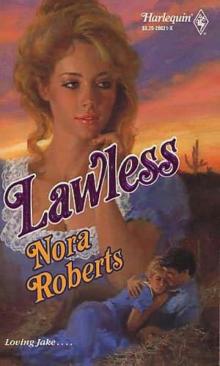 Lawless jh-3
Lawless jh-3 Taming Natasha
Taming Natasha Endless Summer
Endless Summer Bride Quartet Collection
Bride Quartet Collection Happy Ever After tbq-4
Happy Ever After tbq-4 Heart Of The Sea goa-3
Heart Of The Sea goa-3 Search for Love
Search for Love Once upon a Dream
Once upon a Dream Once Upon a Star
Once Upon a Star Dream Trilogy
Dream Trilogy Risky Business
Risky Business The Novels of Nora Roberts, Volume 3
The Novels of Nora Roberts, Volume 3 Dream 3 - Finding the Dream
Dream 3 - Finding the Dream Promises in Death id-34
Promises in Death id-34 The Novels of Nora Roberts, Volume 4
The Novels of Nora Roberts, Volume 4 The Perfect Hope ib-3
The Perfect Hope ib-3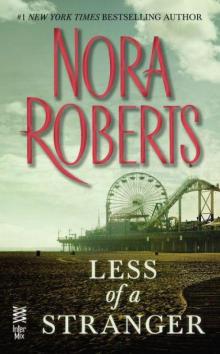 Less than a Stranger
Less than a Stranger Savour the Moment: Now the Big Day Has Finally Arrived, It's Time To...
Savour the Moment: Now the Big Day Has Finally Arrived, It's Time To... Convincing Alex
Convincing Alex Bed of Roses tbq-2
Bed of Roses tbq-2 Savour the Moment tbq-3
Savour the Moment tbq-3 Lessons Learned
Lessons Learned Key Of Valor k-3
Key Of Valor k-3 Red lily gt-3
Red lily gt-3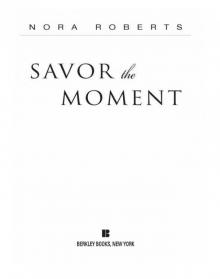 Savor the Moment
Savor the Moment The Return Of Rafe Mackade tmb-1
The Return Of Rafe Mackade tmb-1 For The Love Of Lilah tcw-3
For The Love Of Lilah tcw-3 Black Rose gt-2
Black Rose gt-2 Novels: The Law is a Lady
Novels: The Law is a Lady Chesapeake Bay Saga 1-4
Chesapeake Bay Saga 1-4 Considering Kate
Considering Kate Moon Shadows
Moon Shadows Key of Knowledge k-2
Key of Knowledge k-2 The Sign of Seven Trilogy
The Sign of Seven Trilogy Once Upon a Kiss
Once Upon a Kiss The Novels of Nora Roberts, Volume 5
The Novels of Nora Roberts, Volume 5 Suzanna's Surrender tcw-4
Suzanna's Surrender tcw-4 The Quinn Brothers
The Quinn Brothers Falling for Rachel
Falling for Rachel Brazen Virtue
Brazen Virtue Time Was
Time Was The Gallaghers of Ardmore Trilogy
The Gallaghers of Ardmore Trilogy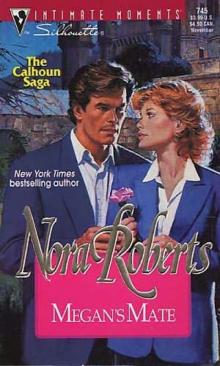 Megan's Mate tcw-5
Megan's Mate tcw-5 Loving Jack jh-1
Loving Jack jh-1 Rebellion & In From The Cold
Rebellion & In From The Cold Blue Dahlia gt-1
Blue Dahlia gt-1 The MacGregor Grooms
The MacGregor Grooms The Next Always tibt-1
The Next Always tibt-1 The Heart Of Devin Mackade tmb-3
The Heart Of Devin Mackade tmb-3 The Novels of Nora Roberts Volume 1
The Novels of Nora Roberts Volume 1 Treasures Lost, Treasures Found
Treasures Lost, Treasures Found Nora Roberts's Circle Trilogy
Nora Roberts's Circle Trilogy The Key Trilogy
The Key Trilogy The Fall Of Shane Mackade tmb-4
The Fall Of Shane Mackade tmb-4 A Will And A Way
A Will And A Way Jewels of the Sun goa-1
Jewels of the Sun goa-1 Luring a Lady
Luring a Lady